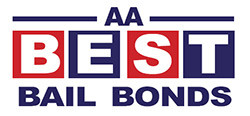The use of bail bonds has long been a contentious issue in the criminal justice system. Critics argue that it perpetuates a two-tier system of justice that favors the wealthy, while advocates argue that it is necessary for public safety. However, recent innovations in the field have led to the development of alternative systems that challenge traditional notions of bail. In this article, we will explore some of these innovative alternatives and how they can help to create a more equitable system of justice.
Breaking the Mold: Innovative Alternatives to Bail Bonds
Pretrial Release Programs
One promising alternative to traditional bail bonds is the use of pretrial release programs. These programs allow people accused of a crime to be released from custody before their trial, without the need for upfront payment. Instead, they are required to attend court hearings and comply with any conditions the court sets. These conditions may include things like drug testing, curfew, or electronic monitoring.
Pretrial release programs have been shown to be effective at reducing pretrial detention rates, particularly for people who cannot afford to pay bail. In addition, they can help to reduce racial and economic disparities in the justice system, as people of color and low-income individuals are more likely to be detained while awaiting trial.
Community Bail Funds
Another innovative alternative to bail bonds is the use of community bail funds. These funds are often set up by non-profit organizations or community groups, and they provide bail money for people who cannot afford it. Once the person’s trial is over and the bail money is returned, it is then used to help other people in need.
Community bail funds have been successful at reducing pretrial detention rates and helping to create a more equitable system of justice. They also have the added benefit of empowering communities to take action and support their members.
Risk Assessment Tools
Finally, some jurisdictions are turning to risk assessment tools to help determine whether someone should be released before trial. These tools use data and analytics to assess a person’s likelihood of reoffending or failing to appear in court. Based on this assessment, judges can then make more informed decisions about whether to release someone on their own recognizance or to require bail.
While risk assessment tools have come under criticism for perpetuating bias and discrimination, some advocates argue that they can be used effectively when combined with other reforms, such as pretrial release programs and community bail funds. By using a variety of innovative alternatives, we can begin to create a more equitable system of justice that works for everyone.
Embracing Change: Inspiring Solutions for a Broken System
As these examples show, there are many innovative alternatives to traditional bail bonds that can help to create a more equitable system of justice. By embracing these changes, we can work towards a future where everyone is treated fairly and equally under the law.
Of course, these alternatives are not without their challenges. They require funding, resources, and political will to implement. However, by working together and staying committed to the goal of a more just society, we can overcome these challenges and create a system that truly works for everyone.
The criminal justice system is in need of reform, and we cannot continue to rely on outdated and unfair practices like traditional bail bonds. By breaking the mold and embracing innovative alternatives, we can build a system that is fair, just, and truly serves the needs of our communities.
As we continue to push for change, let us remember that there is hope for a brighter future. By working together and staying committed to this cause, we can create a system that truly reflects our values and serves the needs of all people. Let us embrace change, inspire solutions, and build a better world.
Article by:
612 E. Leon St.
Gatesville, TX 76528
Phone: 254-865-1377





